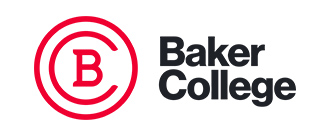The Master of Business Administration in Finance program at Baker College is designed to build on a student's already strong money knowledge, management aptitude, and interpersonal skills for application to real-world business situations. Read on to find out more about this program today.
<h2 id="section---FrequentlyAskedQuestions">Frequently Asked Questions</h2>
<h3 id="section---WhatKindOfProgramIsIt">What Kind of Program Is It?</h3>
<p>The Master of Business Administration in Finance program at Baker College is an online program meant to show students what sorts of ethical, financial, management, and planning issues could arise in the constantly changing business world. Basic business requirement courses are designed to examine the economy, accounting, and human resource aspects, while finance courses look more at banking and financial management topics in different organizational environments. Students may be able to apply the skills they have learned in previous education and experience to create new and innovative business strategies within their courses. In order to graduate from this program, students must pass all of their classes and complete a graduate seminar.
</p>
<h3 id="section---WhatAreThePrerequisites">What Are the Prerequisites?</h3>
<p>Good money sense, organizational skills, and enjoyment in working with numbers are vital for students who wish to apply for this program. Students interested in this program should have already completed at least a bachelor's degree in a related area.
</p>
<h3 id="section---WhatAreTheCourseRequirements">What Are the Course Requirements?</h3>
<p>Students enrolled in this program must complete at least 53 credit hours. These credit hours are split between 20 finance major credit hours and 33 business credit hours.
</p>
<p><u>Finance Major Requirements</u>
</p>
<p />
<table border="1"><tr><th>Course Code</th><th>Course Name</th></tr>
<tr><td>BUS 640</td><td> The Financial Environment</td></tr>
<tr><td>BUS 641</td><td> Money and Banking</td></tr>
<tr><td>BUS 642</td><td> Financial Accounting</td></tr>
<tr><td>BUS 643</td><td> International Business Finance</td></tr>
<tr><td>BUS 645</td><td> Public Finance</td></tr>
</table><p><u>Business Requirements</u>
</p>
<p />
<table border="1"><tr><th>Course Code</th><th>Course Name</th></tr>
<tr><td>BUS 572</td><td> Human Resource Management</td></tr>
<tr><td>BUS 609 </td><td> Graduate Seminar</td></tr>
<tr><td>BUS 615</td><td> Human Behavior Management of Organizations</td></tr>
<tr><td>BUS 630</td><td> Accounting for the Contemporary Manager</td></tr>
<tr><td>BUS 650</td><td> The Economic Environment</td></tr>
<tr><td>BUS 660</td><td> The Marketing Environment</td></tr>
<tr><td>BUS 678</td><td> Research and Statistics for Managers</td></tr>
<tr><td>BUS 690</td><td> Strategy in a Global Environment</td></tr>
<tr><td>MIS 511</td><td> Management Information Systems</td></tr>
</table><h3 id="section---WhatCouldIDoAfterIGraduate">What Could I Do After I Graduate?</h3>
<h4 id="section---CareerOpportunities">Career Opportunities</h4>
<p>Graduates of this program could seek work within banks, insurance companies, financial offices, or government organizations. This could be entry-level employment or could offer greater challenges. These positions may rely heavily on the financial knowledge, organizational skills, and analytical thinking focused on in this program.
</p>
<p>Possible career opportunities include but are not limited to:
</p>
<ul><li>Controller
</li><li>Financial Analyst
</li><li>Personal Financial Advisor
</li><li>Credit Manager</li></ul>


.svg)


